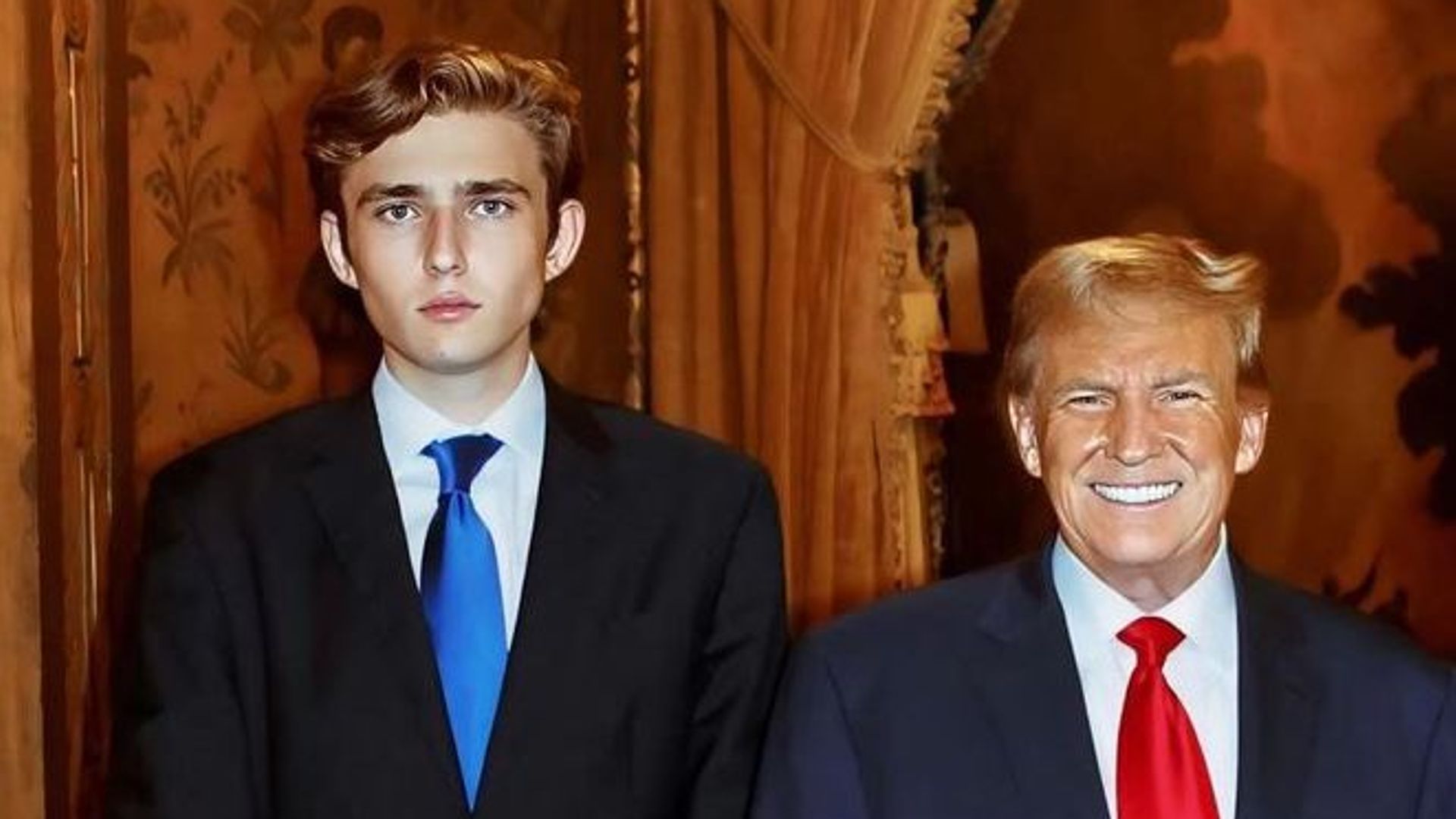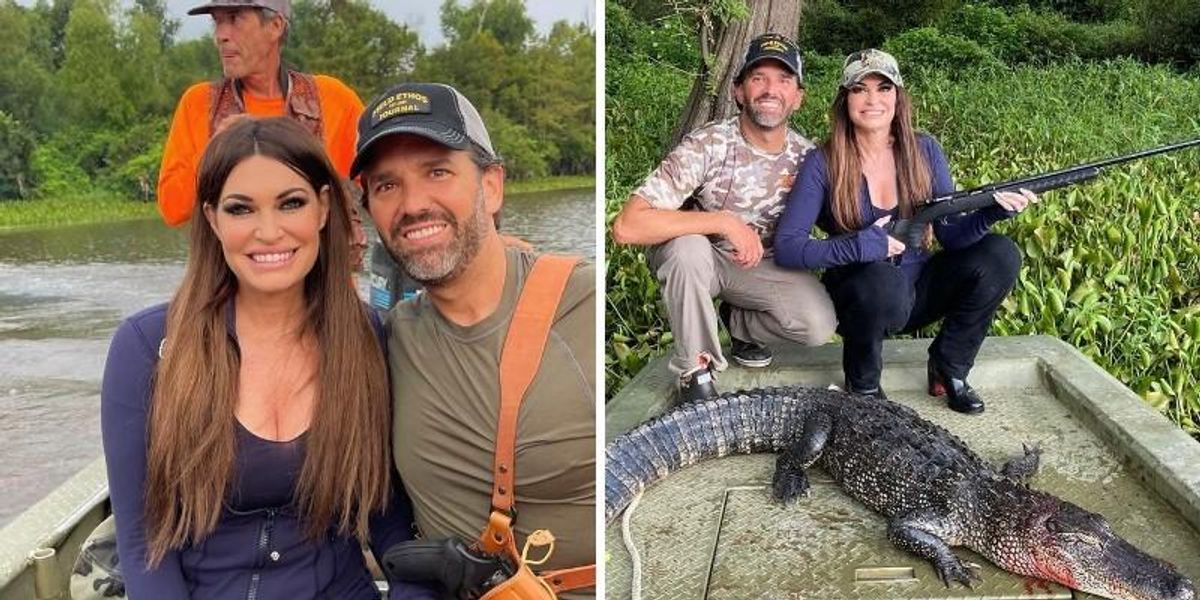When it comes to Barron Trump hunting, curiosity often arises about the youngest member of the Trump family and his interests in outdoor activities. As the son of former President Donald Trump, Barron Trump's hobbies and pursuits naturally draw attention from the public. Hunting, as a popular pastime among many families in the United States, provides an interesting lens to explore his personal life and experiences.
Hunting is not only a recreational activity but also a cultural tradition for many Americans. It connects individuals with nature, teaches responsibility, and fosters a sense of community. For Barron Trump, hunting might represent more than just a hobby; it could symbolize his personal growth and the values instilled in him by his family.
This article delves into the world of Barron Trump hunting, exploring its significance, controversies, and the broader context of hunting as a cultural phenomenon. Whether you're a fan of the Trump family or simply interested in the topic, this article aims to provide valuable insights into Barron Trump's life beyond the headlines.
Read also:Discover The Magic Of Aditi Mistri Videos Your Ultimate Guide
Table of Contents
- Barron Trump's Biography
- The Tradition of Hunting in the Trump Family
- Barron Trump Hunting: An Overview
- The Ethical Debate Surrounding Barron Trump Hunting
- Environmental Impact of Hunting
- Regulations Governing Barron Trump Hunting
- Cultural Significance of Hunting
- Hunting Statistics in the United States
- Expert Opinions on Barron Trump Hunting
- Conclusion
Barron Trump's Biography
Barron Trump: Early Life and Background
Barron William Trump, born on March 20, 2006, is the youngest child of former President Donald Trump and his wife, Melania Trump. Growing up in the public eye, Barron has maintained a relatively low profile compared to other members of his family. Despite this, media outlets often speculate about his interests and activities.
Barron Trump's Personal Information
| Full Name | Barron William Trump |
|---|---|
| Date of Birth | March 20, 2006 |
| Parents | Donald Trump and Melania Trump |
| Residence | New York City, USA |
As a member of one of the most prominent families in the United States, Barron's upbringing has been closely monitored by the media. His involvement in activities such as hunting sheds light on his personal interests and values.
The Tradition of Hunting in the Trump Family
How Hunting Fits Into the Trump Family Legacy
Hunting has long been a tradition in many American families, including the Trumps. Donald Trump Sr. and his siblings were known to engage in outdoor activities, setting a precedent for future generations. This tradition has carried over to Barron Trump, who has reportedly shown interest in hunting as a way to connect with nature and learn valuable life skills.
Key Points:
- Hunting is a family tradition passed down through generations.
- Barron Trump's involvement in hunting reflects his family's values.
- Outdoor activities like hunting promote physical and mental well-being.
Barron Trump Hunting: An Overview
Exploring Barron Trump's Hunting Experiences
Barron Trump hunting activities have sparked interest among both supporters and critics of the Trump family. While specific details about his hunting trips are limited, media reports suggest that Barron has participated in various hunting expeditions with family members and friends.
Read also:Ari Melber Leaving Msnbc Whatrsquos Next For The Acclaimed Journalist
These experiences allow Barron to develop skills such as patience, discipline, and respect for wildlife. They also provide opportunities for bonding and learning about conservation efforts.
The Ethical Debate Surrounding Barron Trump Hunting
Controversies and Ethical Considerations
The topic of Barron Trump hunting often raises ethical questions. Critics argue that hunting can be cruel and unnecessary, especially when it involves endangered species. On the other hand, proponents emphasize the importance of sustainable hunting practices and conservation efforts.
Key Ethical Considerations:
- Respect for animal life and ecosystems.
- Adherence to legal and ethical hunting regulations.
- Support for conservation programs and wildlife preservation.
Environmental Impact of Hunting
Understanding the Role of Hunting in Environmental Conservation
Hunting can have both positive and negative effects on the environment. When conducted responsibly, it helps manage wildlife populations and supports conservation efforts. However, irresponsible hunting practices can lead to habitat destruction and species extinction.
Organizations such as the National Wildlife Federation and the World Wildlife Fund advocate for sustainable hunting practices that prioritize environmental protection and biodiversity.
Regulations Governing Barron Trump Hunting
Legal Frameworks and Hunting Laws
Hunting in the United States is subject to strict regulations at both federal and state levels. These laws aim to ensure the safety of hunters and the preservation of wildlife. Barron Trump hunting activities must comply with these regulations, which include:
- Obtaining proper licenses and permits.
- Following designated hunting seasons and quotas.
- Respecting protected areas and endangered species.
These regulations play a crucial role in maintaining the balance between recreational hunting and environmental conservation.
Cultural Significance of Hunting
Hunting as a Cultural Phenomenon
Hunting holds deep cultural significance in many societies around the world. It serves as a rite of passage, a means of sustenance, and a way to connect with nature. In the United States, hunting is often associated with rural traditions and outdoor lifestyles.
For Barron Trump, hunting may represent a way to embrace his cultural heritage and develop a deeper appreciation for the natural world.
Hunting Statistics in the United States
Data and Trends in American Hunting
According to the U.S. Fish and Wildlife Service, approximately 11.5 million people participated in hunting activities in 2021. This number reflects a growing interest in outdoor recreation and conservation efforts. Key statistics include:
- Big game hunting accounts for the largest share of hunting activities.
- Waterfowl hunting remains popular in certain regions.
- Younger generations are increasingly engaging in hunting as a hobby.
These statistics highlight the enduring appeal of hunting as a cultural and recreational activity.
Expert Opinions on Barron Trump Hunting
Insights from Conservationists and Ethicists
Experts in the fields of conservation and ethics offer diverse perspectives on Barron Trump hunting. Conservationists emphasize the importance of sustainable practices and responsible stewardship of natural resources. Ethicists, meanwhile, focus on the moral implications of hunting and its impact on animal welfare.
Quotes from notable experts include:
- Dr. Jane Goodall: "Responsible hunting can play a role in conservation, but it must be done with utmost care and respect for wildlife."
- Dr. Michael Soulé: "The future of hunting depends on our ability to balance tradition with ecological responsibility."
Conclusion
Barron Trump hunting represents more than just a personal interest; it reflects broader cultural and environmental issues surrounding hunting in the United States. By exploring the tradition, ethics, and impact of hunting, we gain a deeper understanding of its significance in modern society.
We encourage readers to engage in thoughtful discussions about hunting and its implications. Leave a comment below or share this article with others who may find it interesting. For more insights into the world of hunting and conservation, explore our other articles on this topic.


